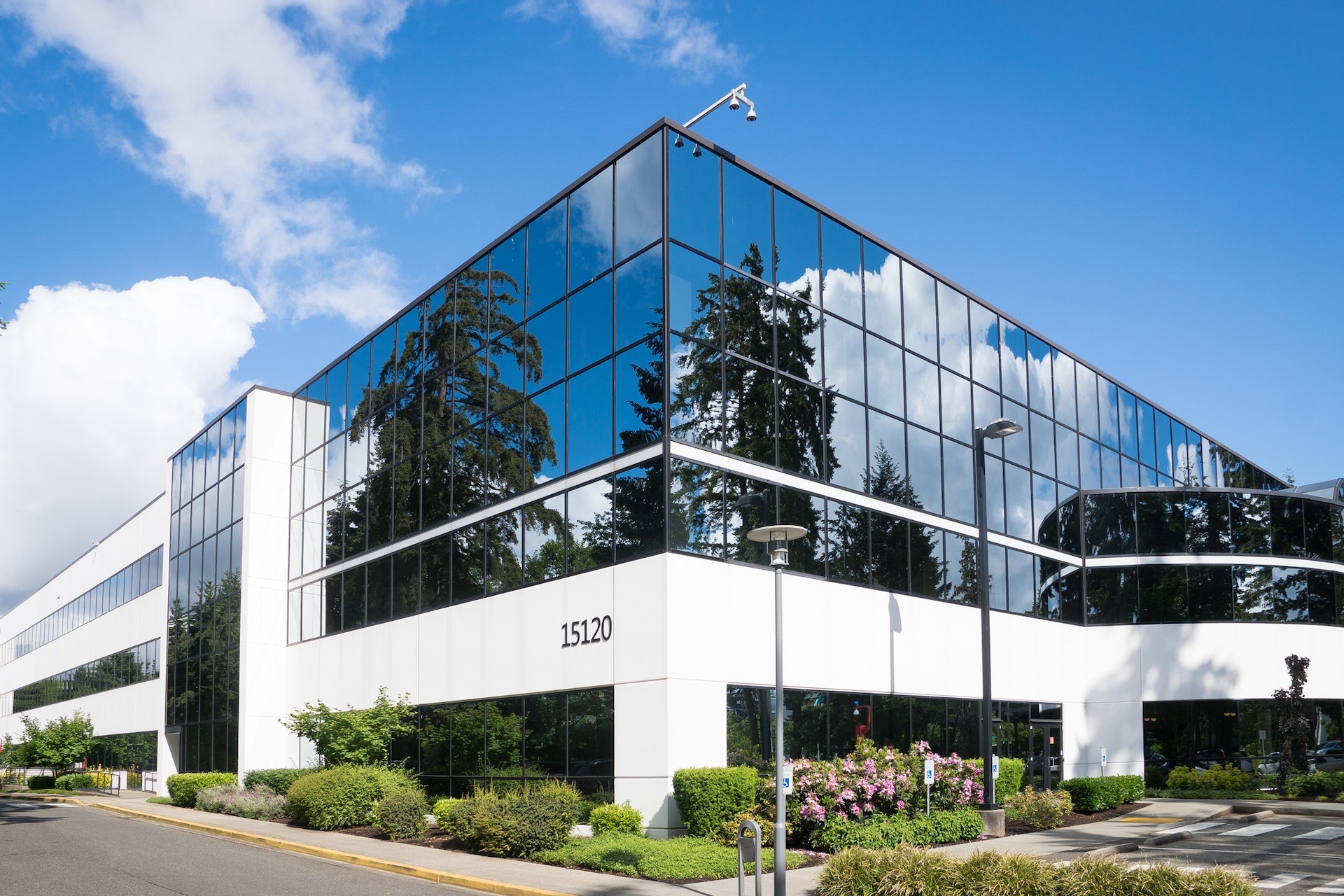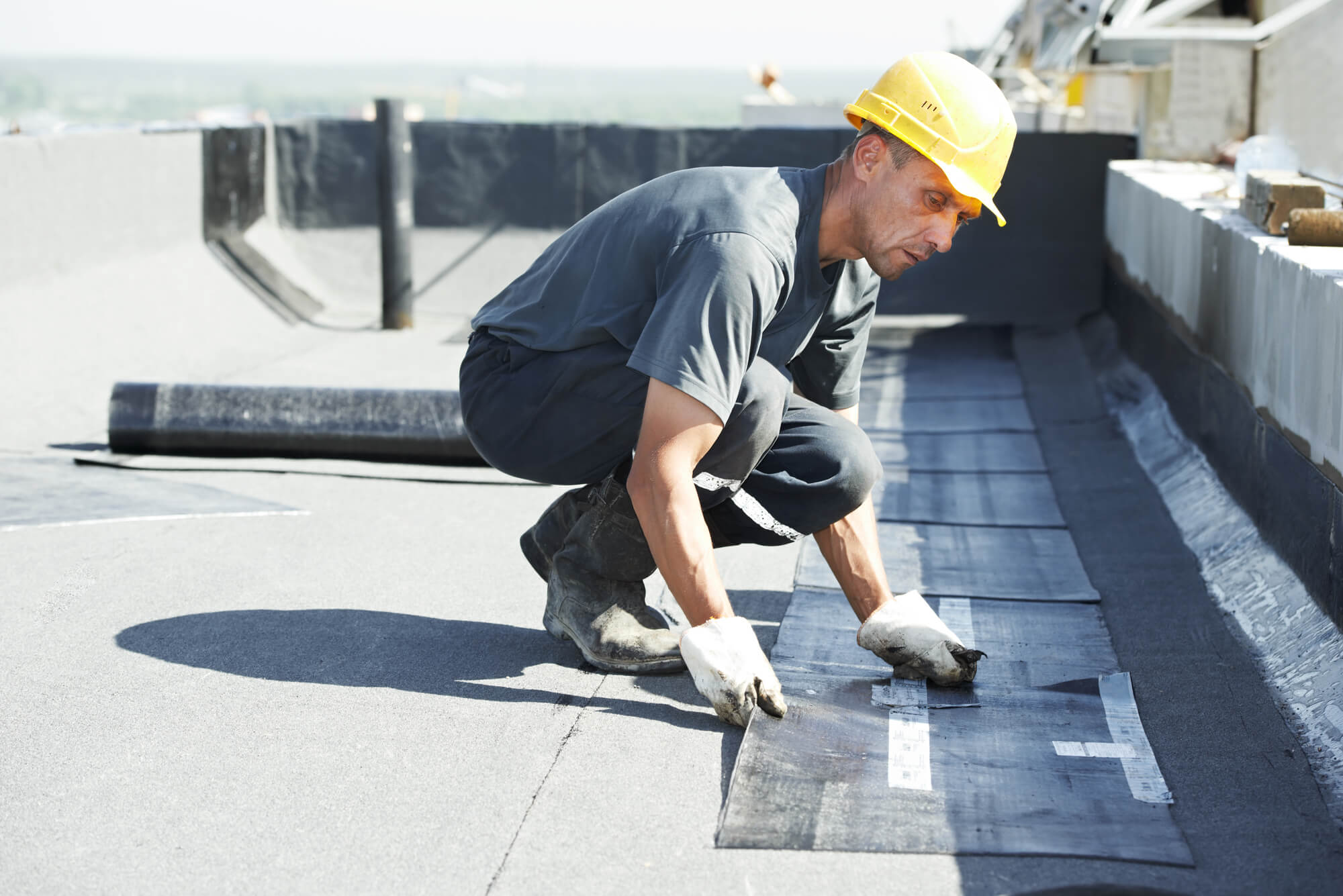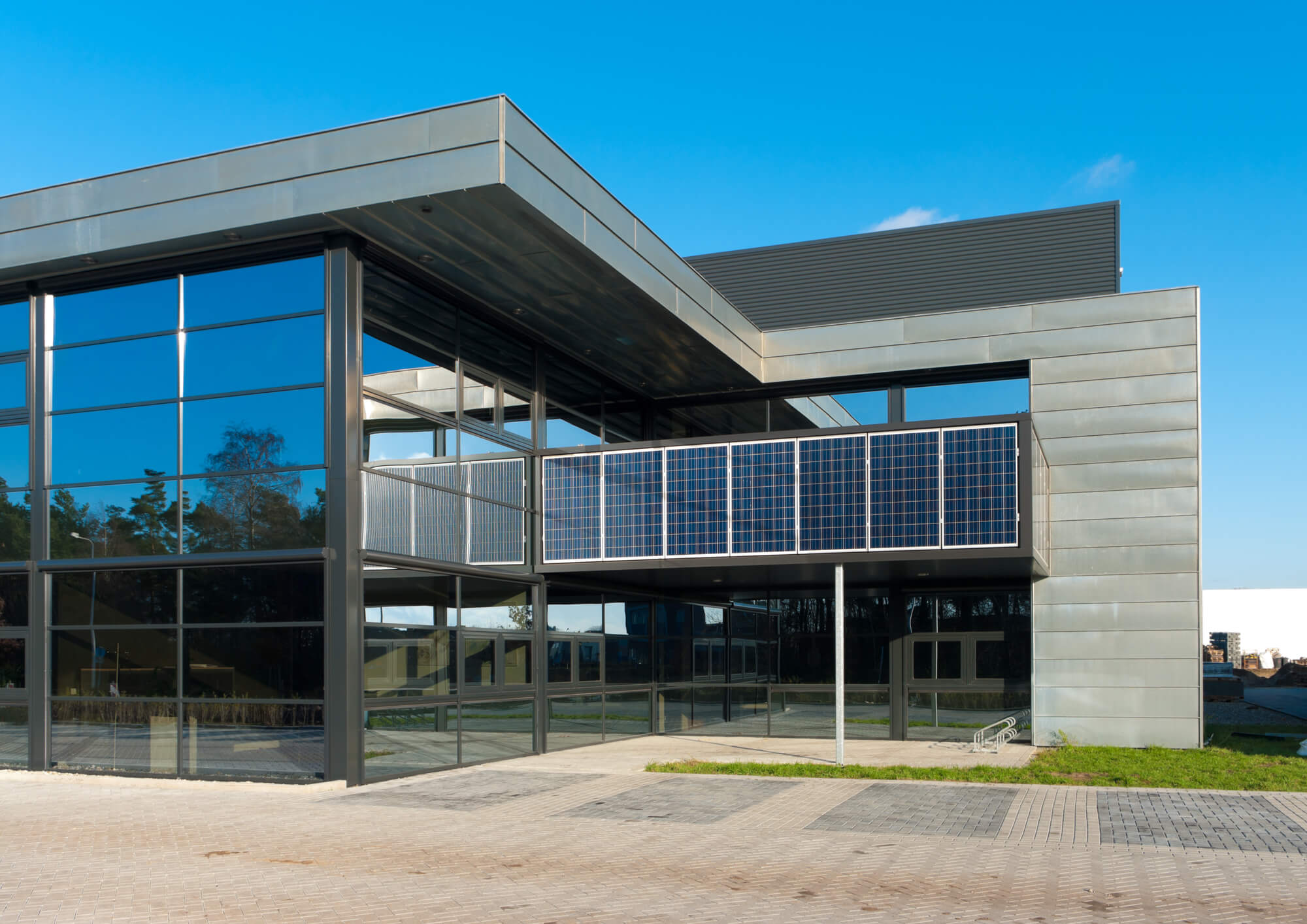June 30, 2024
Beyond Aesthetics: Combining Design and Functionality in Commercial Roofing
Many commercial property owners make the initial mistake of prioritizing aesthetics when
Roofs are built to withstand sun exposure, storms, and environmental fluctuations. Although most people may not realize the importance of a well-maintained roof, they’ll quickly understand how crucial roofs are if theirs don’t function correctly.
Unless a roof gets the appropriate coverage required to lay down a proper defense system, it’s only a matter of time before it starts to deteriorate, along with the usual wear and tear. Besides impacting a building’s efficiency, a poorly-maintained roofing system can cause a spike in monthly energy bill cost. If you’re looking to protect your building’s roof, you’ll want to cover it with a commercial roof coating.

Professionals apply roof coatings on roofing systems to maximize their life by adding an extra layer of protection. Their appropriate application involves repairing, patching, and sealing the roof with a thick coating formula made with high-quality resins.
Moreover, the resins maintain a roof’s elastic properties throughout its life cycle as they form a new monolithic layer once cured. Since this formula offers added waterproofing properties, the coating bridges the tiny cracks and membrane seams on a roof.
It's important to note that standard roof paint doesn’t provide your roof with the protective system a roof coating formula offers. Contractors usually apply small portions of protective layers on a typical roofing system. In most cases, they only use a gallon per 100 square feet.
Alternatively, protective roofing contractors customize the application based on the roofing system’s specifications. For this reason, they could use more than multiple gallons for every 100 square feet on a brand-new roofing installation.
Coating a roof has multiple benefits. Aside from saving time and money, it's an eco-friendly way to make your building run more efficiently. Let's take a closer look at the benefits of using roof coatings.
Since roof coating applications involve reusing your current roofing materials rather than tearing them off, they lower your properties’ environmental impact by reducing waste. Additionally, roof coating formulas typically have no Volatile Organic Compounds (VOCs). For this reason, the coatings don't release strong and harmful fumes into the atmosphere upon application.
Roof coatings can also qualify for the LEED (Leadership in Energy and Environmental Design) program for Sustainable Sites, Energy and Atmosphere, and Materials and Resources, established by the USGBC (United States Green Building Council). This program focuses on using recycled materials and building with construction materials with limited impact on the environment.
While a tear-off and re-roof installation typically take months, an entire roof coating installation usually takes a day or two to complete. What’s more, you and your employees won’t have to deal with disruption and noise while the roof coating service provider restores your current roof to its former glory.
Unlike re-roofing projects, roof-coating applications involve a quicker and easier installation process. Since they take less time to install, your business operations won’t suffer disruptions while the experts coat your roof.
Moreover, roof coating materials are less costly than other roofing services because the coatings are applied directly on top of your existing roof. Professionally installed coating systems also ensure more savings on labor costs because they don’t require much demolition. In addition, they help reduce your landfill fees.
Most commercial property owners install roof coatings due to their sustainability. Thanks to their excellent waterproofing capabilities, these coating systems don’t wear down or lose their reflectivity for many years. If they wear down over time, you can renew their reflectivity by re-coating them.
Roof coatings add reflectivity to your roofing system’s topcoat. Since coatings are made from materials with a higher reflectivity than a conventional roof, they reduce heat gain by reflecting more of the sun’s energy away from your building.
As roof coatings keep the cool air in and the hot air out, residents and visitors will enjoy a more comfortable experience inside your building, while reducing air conditioner use. Besides keeping your energy costs to a minimum, the roof coating’s reflective capabilities extend your rooftop’s lifespan by providing high-quality UV protection.

Yes, they do. While it’s important to understand the difference in each formula, your research concerning your current roofing system, slope, location, and exposure to heat, UV rays, and chemicals, can help you make the right choice.
Since acrylic is a water-based solution that matches most roofing systems, roofers use acrylic roof coatings over asphalt, modified bitumen, or metal roofs. Furthermore, these coatings contain multiple forms of acrylic polymer formulated to maximize a roof’s service life. Acrylic coatings are a popular choice for many because they’re easy to work with, UV-resistant, and highly reflective.
However, acrylic coatings aren't ideal for climates with average temperatures below 50°F because they lose their thickness under the elements. Additionally, they require a primer, fabric reinforcement, and two coats of material to provide you with the same protection level as other coating solutions.
Silicone roof coatings are ideal for metal and asphalt roof restoration. Business owners can save money on cooling their buildings in the summer because these coatings reflect UV rays. Since silicone can wick more moisture for extended periods than other coatings, it provides superior moisture resistance. For this reason, silicone coatings are ideal for commercial buildings in wet locations. While these coatings usually eliminate the need for a primer, they’re durable enough to adhere to most roofing substrates.
However, silicone formulas aren’t suitable for roofing systems that require substantial repair. They also attract dust particles and dirt, causing the roof to lose its reflectivity quicker.
Elastomeric roof coatings are known for their ability to withstand various weather conditions. You can apply this finish to PVC, wood, single-ply, polyurethane foam, concrete, built-up material, modified bitumen, and metal roofs.
While the elastomeric formula is generally less expensive than other options, it doesn’t offer the same UV stability as silicone. It also has a stronger odor than acrylic and silicone coatings.
These typically solvent-based coatings are available in aromatic and aliphatic types. Besides having excellent mechanical properties, polyurethane coatings exhibit high elongation, tensile strength, and high abrasion and water resistance. Consequently, polyurethane coatings are ideal for hail-prone areas or where a roof is exposed to heavy foot traffic. More importantly, these coatings are compatible with most roofing materials.
The coating contractor will inspect your roofing system to determine if it’s a good candidate for a coating. A roof with no standing water on it 48 hours after rainfall has an adequate slope and can handle a coating. They’ll also identify issues requiring repairs.
Coating over damage can cause the roof coating to wear out faster, making it only a quick fix. Consequently, the experts will appropriately address leaks, rust, broken or cracked shingles, and other flaws to extend the life of your roofing and coating systems.
Next, the contractors will eliminate dirt and debris from the surface using a sprayer, pressure washer, hose, or push broom without disturbing the roof membrane and lap seams. After removing any loose materials, they'll let the roof dry completely. The drying process may take up to 24 hours to finish.
After inspecting, repairing, cleaning, and drying your roof, the experts will install the coating. Depending on the roof and coating type, the contractor may spray up to two layers of primer before applying the coating. However, it's worth noting that some roof coating jobs don't require primer.
Once the surface is primed, the contractors will use squeegees, sprayers, and their hands to apply the first and second coatings evenly. While one coat can help an aging roof, the second coat allows you to tap into the warranties provided by coating manufacturers.

At BlueTeam, we want you to have the best roofing system for your building. Our goal is to provide the highest quality of work with the best possible service. You can count on us to recommend the best options depending on your property's environment and specific needs. We have the expertise and resource capabilities to respond quickly and efficiently to all roofing situations – from 24/7 emergency services and repair to new roof installation and re-roofing projects.
We provide installation for a wide range of roof types, such as:
Moreover, our specialists are certified and approved to install major commercial roofing systems, including Carlisle, Firestone, GAF, FiberTite, Johns Manville, and Mule-hide.
As a result, our clients are privileged to enjoy many benefits typically associated with NDL manufacturer warranties.
Furthermore, we coordinate with building owners, property managers, architects, engineers, insurers, and other professionals or entities involved in every roofing project, ensuring everyone is on the same page at all times. We value and maintain open and honest communication throughout the project. For these reasons, working with us saves time because it eliminates the need to individually liaise with other parties involved in the project. Above all, we’ll respond to your queries and address your concerns with the urgency required.
Since we understand that you have a business to run, we wouldn't want roof work to disrupt your day-to-day operations. While our team completes the job, we minimize our footprint through communication and workflow coordination to maximize your ability to operate as usual. Contact us today to request a demo or a quote.